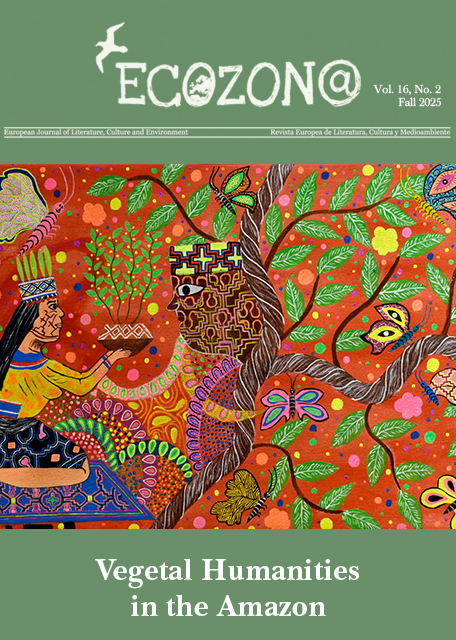Into the Fray: A Call for Policy-engaged and Actionable Environmental Humanities
DOI:
https://doi.org/10.37536/ECOZONA.2020.11.2.3547Parole chiave:
Environmental humanities, Sustainable Development Goals, science-policy interface, knowledge assessment, global environment changeAbstract
As European countries strive to meet their targets in support of the Paris Agreement on Climate Change and the 17 Sustainable Development Goals adopted by UN member states in 2015, the importance of integrating all knowledge communities in coordinated responses to sustainability challenges becomes an increasing priority. The creativity and depth of knowledge within philosophical, cultural, aesthetic and historical disciplines of the humanities has been underutilized in coordinated international assessment initiatives that aim to inform policy and facilitate solutions of sustainability governance. The Environmental Humanities (EH) is a field of growing significance internationally. While it can no longer be called an emerging field, EH still holds only the promise of bringing knowledge of social and cultural systems to coordinated international efforts to address the human dimensions of global environmental change. The significant knowledge and expertise on the human dimensions of environmental change available within the EH field should be regarded as an indispensable resource to policymakers and to those on the ground who work to achieve the Sustainable Development Goals. This essay makes a case for actionable, policy-engaged environmental humanities, an ambition that should certainly extend to the domain of the humanities more generally.
Downloads
##submission.downloads##
Pubblicato
Fascicolo
Sezione
Licenza
Authors who publish with this journal agree to the following terms:
a) Authors retain copyright and grant the journal right of first publication with the work simultaneously licensed under a Creative Commons Attribution License that allows others to share the work with an acknowledgement of the work's authorship and initial publication in this journal (CC BY-NC for articles and CC BY-NC-ND for creative work, unless author requests otherwise.
b) Authors are able to enter into separate, additional contractual arrangements for the non-exclusive distribution of the journal's published version of the work (e.g., post it to an institutional repository or publish it in a book), with an acknowledgement of its initial publication in this journal.
c) Authors are permitted and encouraged to post their work online (e.g., in institutional repositories or on their website) prior to and during the submission process, as it can lead to productive exchanges, as well as earlier and greater citation of published work (See The Effect of Open Access).










